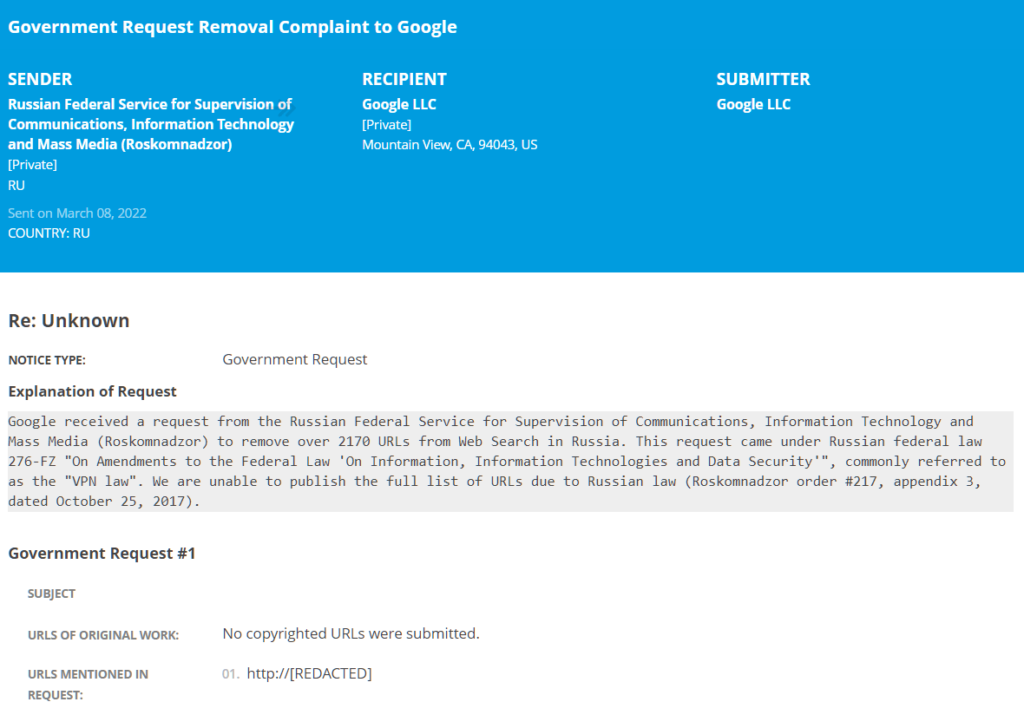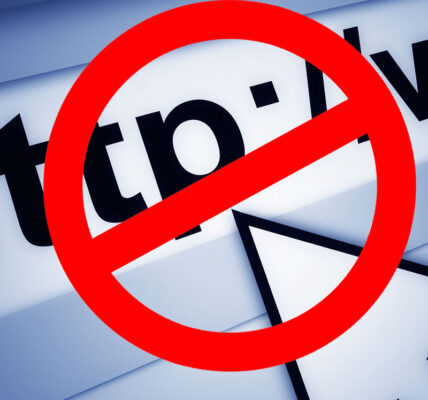Russia’s relentless efforts to control the flow of information within its borders have intensified in the wake of the Ukraine invasion. The country’s telecoms regulator, Roscomnadzor, has exerted pressure on Google, resulting in the removal of tens of thousands of new URLs from search results. These URLs lead to VPN resources that offer access to content deemed ‘banned’ by Russian authorities, including independent foreign and local media outlets that defy state propaganda narratives.
The period between 2011 and 2013 marked a significant chapter in Russia’s history, characterized by widespread protests fueled by allegations of election fraud and the suppression of civil liberties. Targeting Vladimir Putin’s government, these demonstrations triggered a response from Russia’s Federal Security Service (FSB), prompting requests to vKontakte, a prominent social media platform, to censor opposition groups accused of attempting to incite revolution.
In a bid to control the online narrative, Russia introduced legislation in late 2012, empowering authorities to blacklist and block websites, publications, and online news outlets perceived as dissenting voices. This censorship campaign expanded to encompass copyrighted material, leading to the implementation of stringent measures against VPNs, Tor, anonymizers, and proxies in 2017. While services operating within Russia and granting government access to server data were spared, many opted to relocate to avoid exposing users to surveillance.
Following the invasion of Ukraine on February 24th, 2022, Russia intensified its crackdown on dissenting voices and independent journalism. A new law targeting ‘fake news’ threatened journalists with severe penalties, including up to 15 years in prison, while their websites faced blocking, effectively ensuring that local news served as a mouthpiece for the Kremlin.
In response, citizens turned to VPNs to access uncensored information, prompting a surge in their popularity. However, Russia escalated efforts to restrict access by pressuring search engines like Google to remove VPN-related URLs from their indexes. Despite the campaign’s scale, details of the targeted services remain concealed, as Russian law prohibits their disclosure.
While Google complied with removal requests, it refrained from disclosing the targeted URLs, citing Russian regulations. This lack of transparency underscores the challenges faced by journalists in uncovering and exposing censorship abuses, highlighting the chilling effect of Russia’s censorship campaign on online freedom and dissenting voices.

Russia’s censorship strategy follows a meticulous pattern, sealing off access to information deemed unsanctioned by the state and silencing dissenting voices. By blocking websites that defy censorship or refuse to propagate propaganda and subsequently restricting access to VPNs and anti-circumvention tools, the government maintains tight control over the flow of information. Furthermore, Russian law prohibits disclosure of the content blocked by search engines, preventing transparency and accountability.
Interestingly, Russia’s censorship efforts may culminate in a complete shutdown of dissenting voices by establishing its own heavily censored internal internet, disconnected from the global network. This “sovereign internet” would operate under strict control, with all external traffic routed through government-controlled gateways. Internal traffic would be subjected to deep filtering and blocking, rendering VPNs and other circumvention methods ineffective.
As Russia faces increasing isolation on the global stage, its pursuit of a sovereign internet reflects a broader trend towards digital authoritarianism, further entrenching control over information and stifling dissent within its borders.







